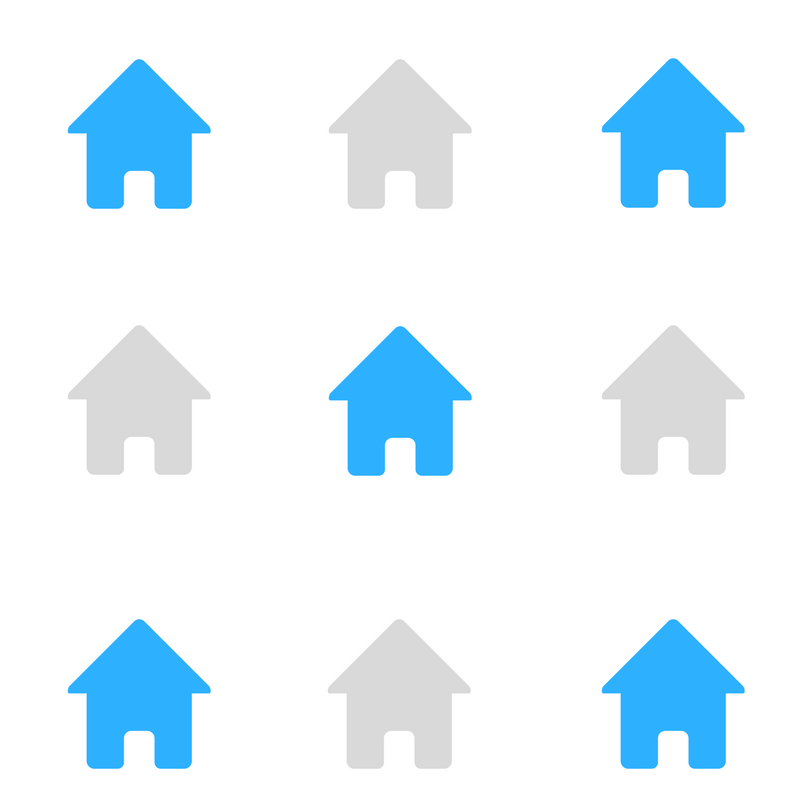10 Foolproof Ways for Home Buyers to Prepare for Buying a House
 Buying a house is a process that needs a lot of planning. There are few home buyers that can decide one day they are going to purchase a house and accomplish this task within the same week or even month. A buyer must prepare their finances, decide what is important in a house for their life, and work with a lender to get a mortgage.
Buying a house is a process that needs a lot of planning. There are few home buyers that can decide one day they are going to purchase a house and accomplish this task within the same week or even month. A buyer must prepare their finances, decide what is important in a house for their life, and work with a lender to get a mortgage.
Below are steps home buyers will need to be ready for when buying a house.
Plan It Out
While not every buyer will stay in their house long term, there is a possibility of the market changing. A buyer may find themselves stuck in a house that they planned on selling. Smart buyers buy a house that can fit the needs of a growing and aging family or one that has plenty of room to expand. In the worst case scenario, the house can grow with the family or be sold at a later time.
Risks of Investing
The housing market is volatile. One minute an investor may be raking in cash and the next the market has gone belly up and they are stuck with multiple properties that are not worth as much.
Someone who has not invested in real estate previously should buy a house that suits their needs to live in. Even if it turns into an investment property at a later time.
Must-Have Features
When shopping for houses it is easy to be dazzled by the many features new homes have. These features are wonderful to have, but they are not required in a house sale.
Making a list of the features or amenities that must be available is a good starting point when shopping for houses.
Personal Finances
Knowing what budget is realistic is a good starting point for a first-time buyer. Most people overestimate their buying power. In turn, they look at houses that are widely out of their price range which only leads to disappointment when they start looking at the lower cost houses in the area.
When buying a house, a budget is important because it can save buyers from finding themselves unable to make mortgage payments on a loan that is too large.
Down Payment
The down payment is important. The higher a down payment the more confidence a seller will have in the buyer. It will also help the buyer to avoid paying for private mortgage insurance once they have the loan.
The mortgage that needs to be paid will be lower because of a higher amount put down initially. This can help to lower the monthly costs of having the loan.
Safety Net
Many buyers make the mistake of spending all of their money on a down payment or other fees associated with the loan. Once they have closed on a house and begin paying their mortgage payments money can grow tight and there is no safety net to fall back on.
A buyer that is prepared to buy should have around six months of income in their savings account to help them in case of an emergency.
Lender Financing
A buyer should not begin their search for a home by looking at houses. The process actually starts with a lender. Talking with a lender to learn what can be afforded is important.
Getting pre-approved for a mortgage is the best way to approach house buying. It instills confidence in any seller that is on the receiving end of an offer.
Shop Around
No two lenders are the same. Similarly, no two loans are the same. Every lender, loan and borrower will bring something different to the table. That means calling around and speaking with multiple lenders to find the best loan. Interest rates will change how much a borrower pays over the life of the loan.
Income and Payments
To live comfortably a buyer should not spend more than one-third of their net pay on a house. That means a house payment should only take up one-third of their monthly income.
Many buyers find themselves pushing this amount higher to get a good location or to buy a house that is too far out of their price range.
Say No
The hardest part of searching for a house is walking away from the wrong house. If the house is out of the price range or does not meet the must-have criteria it is not the house for the buyer.
Many people think they will grow to like a house. Most who purchase a house out of desperation grow to hate it more over time.